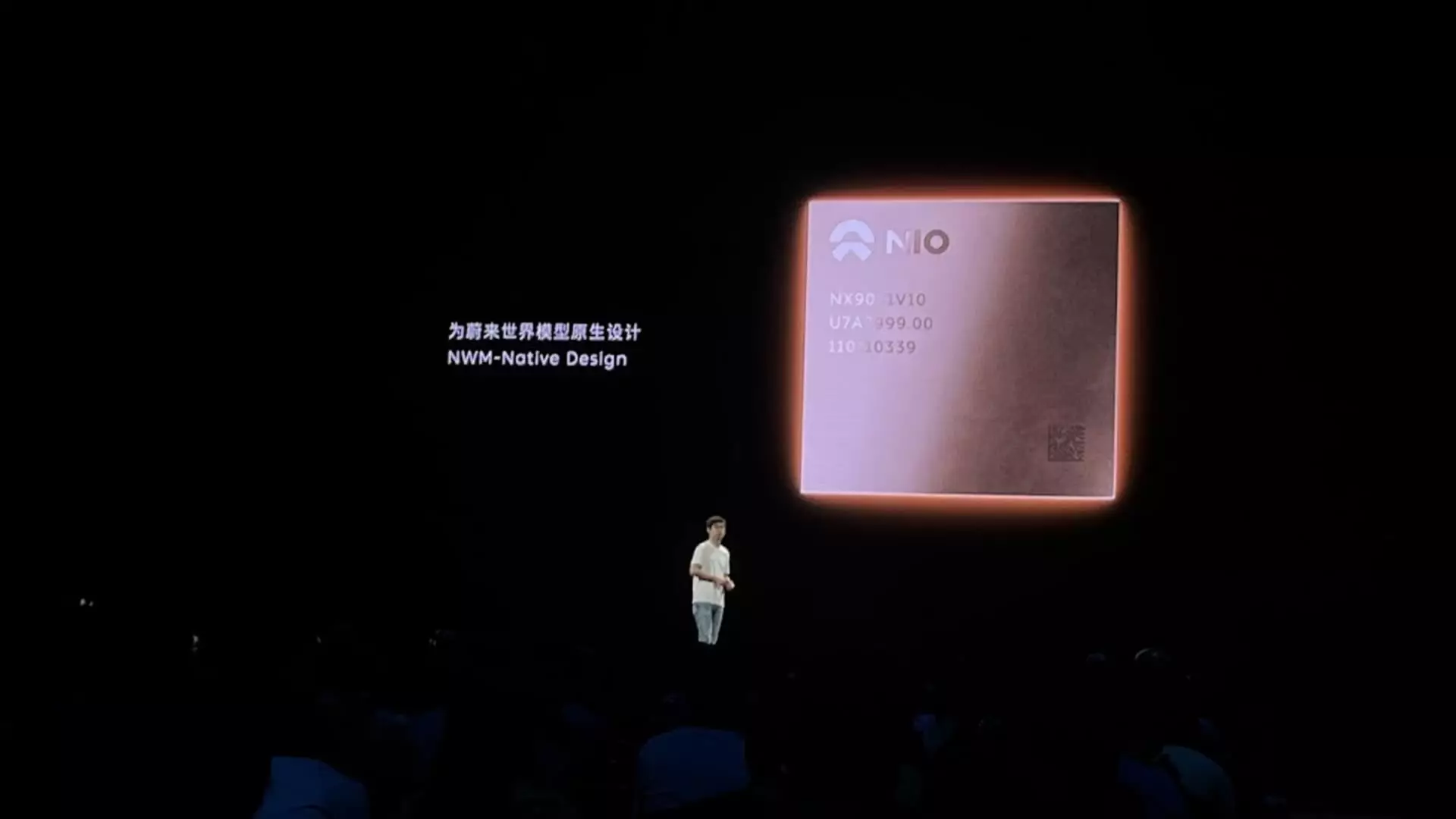Chinese electric car companies are intensifying their competition not only in terms of pricing but also in the realm of chip-powered tech features. Nio and Xpeng have made announcements regarding the readiness of their in-house designed auto chips for production. This move marks a shift from relying on established brands like Nvidia for automotive chips. The decision to develop their own chips stems from a desire to differentiate their products and reduce supply chain risks.
For several years, major Chinese electric car makers have heavily relied on Nvidia chips, which have been a significant revenue stream for the company. Nvidia reported a substantial increase in automotive segment revenue in the latest quarter, highlighting its stronghold in the industry. However, with the success of Tesla in self-driving technology and chip development, Chinese automakers are motivated to create their own chips to match the advancements seen in the market.
While Chinese electric car startups are investing in designing their own chips, traditional automakers are more likely to continue relying on established players like Nvidia and Qualcomm. The shift towards in-house chip development is driven by the need for customization and reducing reliance on external suppliers, especially in light of geopolitical tensions. This move could potentially disrupt the market dynamics and compel traditional automakers to reconsider their strategies.
The development of automotive-grade chips using advanced production technologies like 5 nanometers represents a significant advancement in the Chinese automotive industry. Companies like Nio are pioneering the use of cutting-edge chip technologies in their vehicles, which will enable them to offer enhanced features and functionalities to consumers. The choice of nanometer technology plays a crucial role in determining the performance and efficiency of the chips, highlighting the commitment of Chinese companies to stay at the forefront of innovation.
While Chinese electric car companies are venturing into in-house chip development, many of them maintain partnerships with established players like Nvidia. The collaboration between Xpeng and Nvidia underscores the importance of leveraging each other’s strengths to drive innovation in the sector. By combining their expertise, companies can deliver state-of-the-art features and maintain competitiveness in the market. These partnerships demonstrate a strategic approach to technology integration and industry collaboration.
The growth of the electric car market in China has been bolstered by government incentives and supportive policies that encourage the adoption of new energy vehicles. With more than 50% of new passenger cars sold in China being electric vehicles, companies are contributing to defining new industry standards and technological advancements. The focus on smart connected vehicles and driver-assist technologies is reshaping the automotive landscape, driving innovation and creating new opportunities for companies in the sector.
Looking ahead, Chinese electric car companies are positioning themselves as global players in the automotive industry, with plans to expand their reach and influence beyond domestic markets. Companies like Xpeng aspire to become global artificial intelligence car companies, emphasizing the importance of advanced technologies like cloud computing and driver-assist systems. The ability to adapt to changing market dynamics and technological advancements will be crucial for companies seeking to establish a strong presence in the competitive electric car market.

